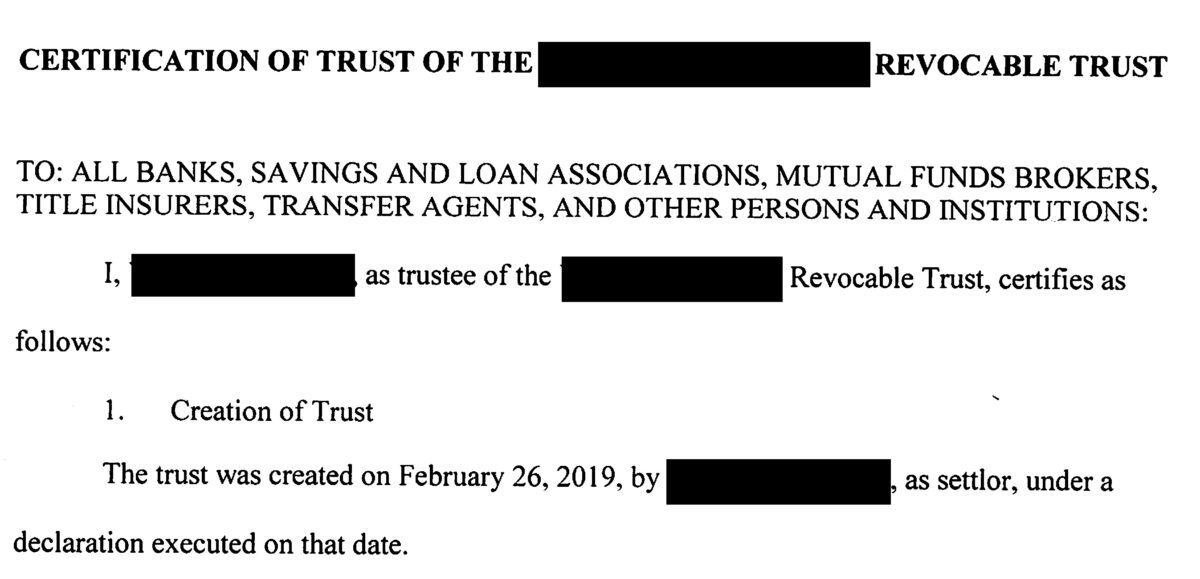The Certification of Trust (“Certificate”) serves multiple purposes.
First, it is a synopsis of the main terms of the Trust. Once a Trust is established, it must be “funded”. Assets that typically get transferred into the ownership of the Trust are Real Property, Bank Accounts, and Regular Brokerages.
The Settlor (Individual establishing the Trust) then presents the Certificate to the Financial Institution. Likely he or she will be asked for the Certificate.
Usually it is a good idea to bring the “original wet ink” signed and notarized Certificate due to chain of custody concerns. If you bring a homemade Copy, the Financial Institution may reject it, and ask for an “Attorney Certified Copy of the Certificate”.
The Financial Institution wants the Certificate because it wants the “Synopsis”, or main terms and summary v. the forty page Revocable Trust document for which it lacks legal resources.
A second purpose involves Real Property. If Real Property is transferred into the ownership of the Trust, the Certificate will indicate the same. The Certificate can be recorded with the County Recorder. If not recorded, it will need to be presented to the Title Company upon sale of the Real Property.
The Law Offices of Hanlen J. Chang provides a Certification of Trust with each Revocable Trust package.





